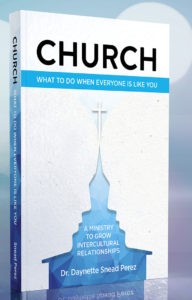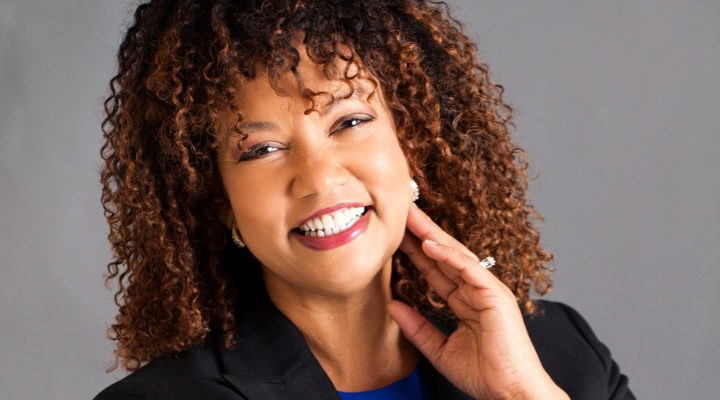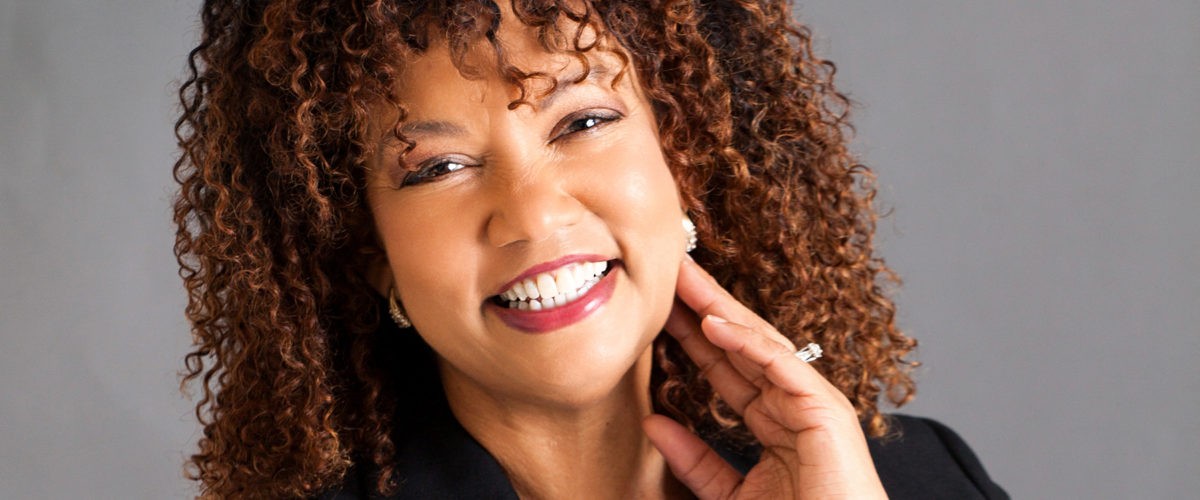The Cooperative Baptist Fellowship’s new domestic disaster response manager sees a direct correlation between helping communities recover from catastrophes and helping society recover from systemic injustice.
Both missions require clergy, church leaders and congregations to build relationships that transform strangers into neighbors through dialogue and service, said Daynette Snead Perez, a Baptist minister and Charlotte, N.C., resident who replaced Rick Burnette in the CBF position May 1.
Connecting the dots between disaster response and intercultural ministry is no mere academic exercise but a lived experience for Snead Perez, a diversity consultant and author, past chair of the Racial Justice and Equity ministry for CBF North Carolina and former associate pastor at First Chin Baptist Church, a congregation of Burmese refugees in New Bern, N.C. She earned her chops in disaster relief work serving as a local CBF response coordinator after Hurricane Florence in 2018, a function that segued into a disaster relief specialist role with the Fellowship before beginning her current position. She also is a construction and real estate entrepreneur.
“Disaster response and intercultural ministry are opportunities to provide transformational change within the body of Christ.”
“For me, disaster response and intercultural ministry are opportunities to provide transformational change within the body of Christ,” she explained.
With the 2021 hurricane season fast approaching, Snead Perez said she has hit the ground running by meeting with CBF state and regional coordinators about disaster preparedness in their regions. She seeks to connect them with existing preparedness resources online, assessing needs and identifying congregations capable of being host churches for relief groups in future disasters.
Another immediate task has been jumpstarting the flow of church-based volunteer teams available not only for the upcoming season but currently in Lake Charles, La., which was hit by two hurricanes in 2020 and remains an active recovery zone. Teams were unable to visit last year due to the COVID-19 pandemic. A team from Kentucky recently worked in the city.
“We are working on getting teams to step up, and we are finding churches are inquiring more about how they can get involved,” she said.
Church-based volunteer groups provide vital functions in CBF’s long-term approach to disaster recovery. Depending on the skillsets of individual members, the teams may conduct cleanup and home and church repairs.
“Disaster response is not the transactional relationship of providing a service, then leaving town.”
But response goes beyond physical reconstruction to include post-event spiritual care to help disaster victims recover emotionally and spiritually, Snead Perez said. Visiting teams also are encouraged to engage with the community through worship when possible.
“Disaster response is not the transactional relationship of providing a service, then leaving town. It is a transformational ministry experience for everyone involved, where there is this reciprocal sharing of culture and ministry,” she said. “As we do that, resilience is built within the community and there are lasting relationships as a result of those visits.”
Those encounters can be powerful catalysts for sparking cross-cultural connections, Snead Perez said. “Intercultural ministry — that is what’s happening in disaster response. It’s how we can reach across cultural boundaries, social boundaries, class and ethnic boundaries for Christ.”
 This is a topic she tackles in depth in her book, Church: What to Do When Everyone Is Like You, which is due for release this summer.
This is a topic she tackles in depth in her book, Church: What to Do When Everyone Is Like You, which is due for release this summer.
The volume draws on her disaster response experience, from her time as an African American minister in a Burmese congregation, and from her work through DIASPRA, the consulting ministry she founded to guide clergy, lay leaders and congregations through cross-cultural encounters.
“I wrote this book to show churches how to build relationships with people who are different than they are and to equip congregations to achieve unity in faith,” she said.
Snead Perez said she will employ the principles of intercultural ministry in her new role with CBF. Chief among those: Being the hands and feet of Christ. “In the ministry of disaster response, we are the body of Christ as we show up. Our image of God shows up in our actions and so God shows up when we show up.”
Snead Perez’ combination of skills was a powerful draw in her selection, CBF Global Missions Coordinator Steven Porter said in the announcement of her appointment.
“Through her background in business, real estate, pastoral care, intercultural ministry, diversity training and disaster response, the Holy Spirit has equipped her with uncommon gifts to lead CBF Disaster Response alongside our churches,” Porter said
Burnette, who held the position three years, said in the announcement that Snead Perez is beyond capable of handling the task ahead.
“Daynette brings so much to CBF Disaster Response with her practical experience as a local response coordinator … and her involvement with the emerging post-disaster spiritual care initiative. She also brings a pastor’s heart and has had considerable intercultural ministry experience,” said Burnette, who stepped down in order to focus his attention on Cultivate Abundance, a ministry he and his wife, Ellen, founded to serve farmworkers in Immokallee, Fla.
Related articles:
With vaccinations on board, CBF disaster relief looks toward unfinished work in Bahamas
COVID-19 expected to complicate disaster relief efforts in busy 2020 hurricane season
Disaster volunteers face ‘primitive’ conditions in Dorian-ravaged Bahamas


